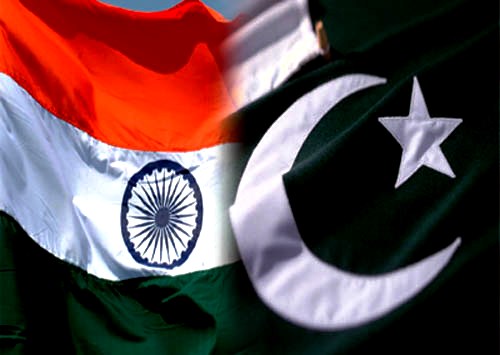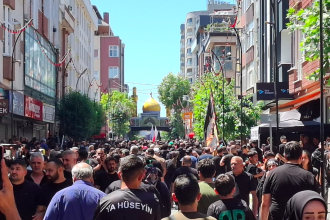By SAQUIB SALIM
As the tensions between India and Pakistan are escalating again, several voices in India are speaking up against the war. It is being pointed out that a war between the two nuclear powers will bring nothing but destruction. On the other hand, there are many who want to teach Pakistan a lesson militarily, and hence solve the issue for once.
On social media, we are witnessing pitched battles between these two groups. Both the groups are calling each other politically motivated and against the interests of India. While looking at their arguments, I am wondering that what love for one’s country without maturity can do. Since, both the arguments are on the extremes.
At this time both the groups should read, understand and reflect upon the words written by Ali Sardar Jafri, a progressive poet, during the 1965 aggression from Pakistan. In his poem, ‘Kaun Dushman Hai’, (Who Is the Enemy) like any humanitarian, he urges Pakistan to end the war while telling her that to ensure peace she should stop the aggression, otherwise India is capable of a military offensive. Though he bats for peace, Jafri is not averse of giving a call for war in defence of his motherland.
He writes;
Ye tank, top, ye bombbaar, aag banduuqe
Kahaan se laaye ho, kis ki taraf hai rukh inka
Dyaar-e-waris-o-iqbal ka ye tohfa hai?
Jaga ke jung ke tufaan zameen-e-nanak se
Uthe ho barq giraane kabeer ke ghar par
(These tanks, cannons, bombers and guns
From where have you brought them, who is the target
Is it a gift from the land of Waris and Iqbal?
You have raised a storm of war on Nanak’s country
To struck the land of Kabir with lightening)
The question which Jafri raised in 1965 is still relevant. India is questioning Pakistan that who does she want to target with violence, and why? He beautifully puts forward a cultural legacy which both the countries share by invoking the names of Waris, Iqbal and Nanak to represent Punjab in Pakistan and Kabir as the representative of India. For Jafri, Pakistan’s crime becomes more heinous by the fact that she has violated the sanctity of the land of Nanak and Waris by making it launching pad of violence against innocent humans.
Jafri further tells Pakistan what India wanted ;
Maza to jab tha ke mil kar ilaj-e-jaan karte
Khud apne hath se tamiir-e-gulistaan karte
(Pleasure would have been in fighting problems together
We would have built a garden of our own)
India wanted nothing but to cooperate with Pakistan in order to fight against poverty, illiteracy and other national problems.
What India got in return ? Jafri goes on ;
Magar tumhari nigaaho ka taur hai kuch aur
Ye behke behke qadam uth rahe hain kis janib?
Kidhar chale ho ye shamsheer azmane ko?
(But, you wanted something else
In which direction are you heading?
Where are you going to try your sword?)
After this point in the
Samajh liya hai jise tumne mulk ki sarhad
Wo sarhad-e-dil-o-jaan hai, humara jism hai wo
(What you consider as border of a country
It is border of heart and soul, it is our body)
Agarche kehne ko jii chahta nahi lekin
Jawab-e-ahl-e-hawas, tegh aab daar bhi hai
(Even though I don’t want to warn you
Our swords have all the answers to your greed)
Jafri throughout this long poem keeps on telling Pakistan that India does not want war, but we also know how to defend ourselves in face of any aggression. Stanza which should be sent to Pakistan again and should be understood by our young generation too is worth mentioning. Jafri writes ;
Humare beech me haayal hain aag ke dariya
Tumhare aur humare lahu ke sagar hain
Bahut buland siyaah nafrato ki diware
Hum unko ek nazar me gira bhi sakte hain
Tamam zulm ki baate bhula bhi sakte hain
Tumhe phir apne gale se laga bhi sakte hain
Magar ye shart hai tegho ko todna hoga
Lahu bhara hua daman nichodna hoga
Phir uske baad na tum ghair ho na ghair hain hum
(We have rivers of fire between us
Sea of our blood is in between
Dark high walls of hate
We can demolish them in an instant
We can forget cruelties
We can again embrace you
But a condition, you have to break your swords
Squeeze out blood from your hem
After that we won’t be strangers anymore)
Jafri maintains that as an Indian, he wants nothing but peace but there are obstacles to the path of peace. India can embrace Pakistan and normalise the relations only on one condition that cross border terrorism must stop. It cannot be expected that India calls for peace and Pakistan keeps on sponsoring terrorism, overtly or covertly. We want peace, we want an overall development in the subcontinent, we want cultural exchange across the border but for that Pakistan has to give up the violence. This is what Ali Sardar Jafri also thought half a century back. Peace cannot be unilateral but war is also no solution. We don’t want war but we know how to defend our motherland.
(Author is a Research Scholar of Modern History in JNU)









